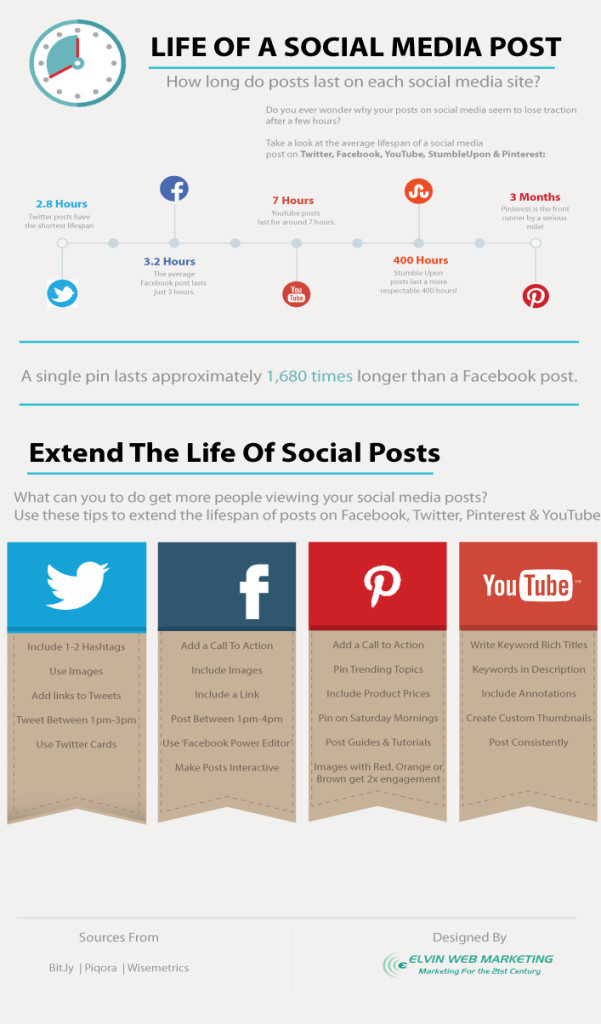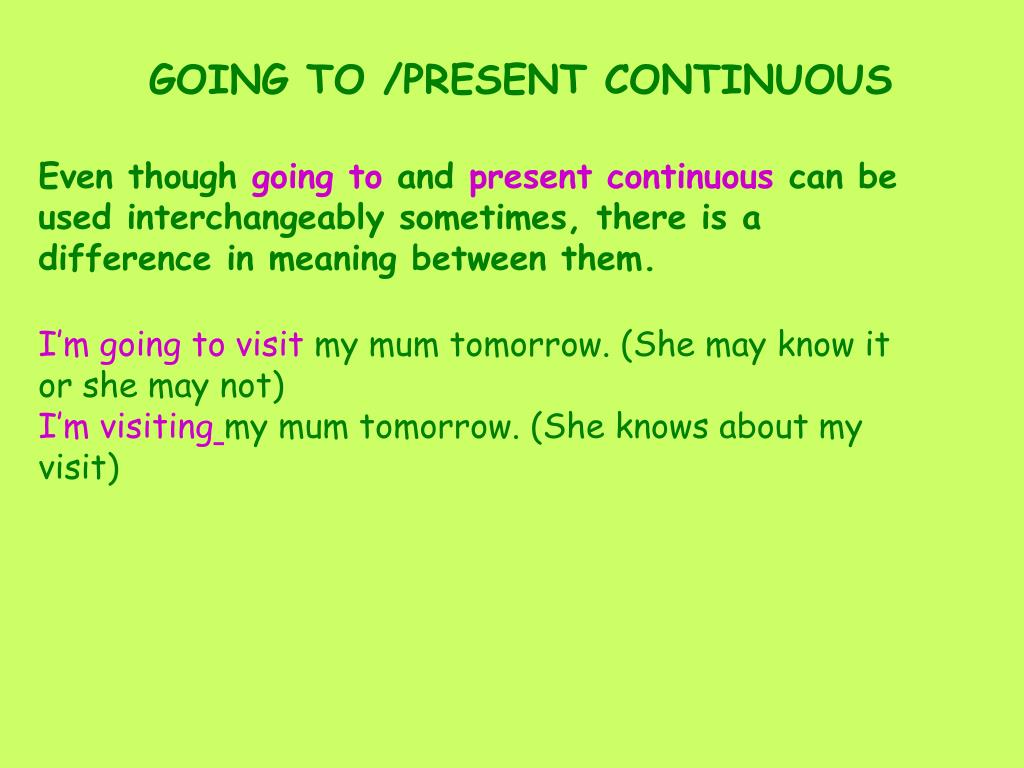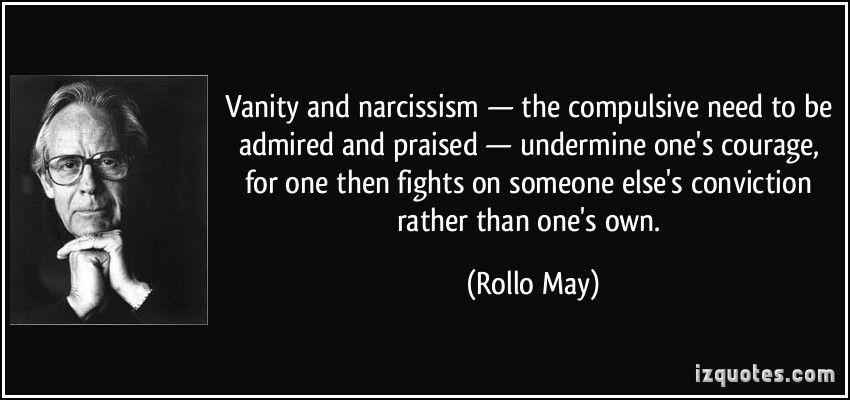How to feel secure in a relationship
How to Create Emotional Safety in a Relationship: 7 Tips
Understanding how to create emotional safety is key to fostering meaningful connections and healthy relationships.
Emotional safety is the foundation for a loving and healthy relationship. It’s about establishing trust with another person and feeling safe enough to be open and vulnerable with them.
To put it simply, emotional safety is feeling secure enough to truly express yourself with someone and show up as your most authentic self.
Emotional safety also goes both ways. When you feel emotionally safe and reveal your true self, it opens the door for your partner to do the same. And when both people in a relationship feel secure, it provides a safe environment where a deeper and more loving connection can form.
Safety matters
Emotional safety does not apply to abusive relationships. If you’re experiencing abuse, whether physical or emotional, you have several options for seeking help. Try reaching out to a trusted friend, family member, or therapist or calling a domestic violence hotline.
When you find yourself in an emotionally safe relationship, chances are you’ll experience many advantages as a result. Benefits of emotionally safe relationships include:
- You feel valued and valuable.
- You can truly be yourself without the risk of judgment.
- You can show your weaknesses without being taken advantage of.
- You can share boldly and express yourself freely.
- You feel seen, heard, and understood.
More importantly, an emotionally safe relationship creates a stronger connection.
Of connection, Brené Brown, author and research professor of social work at the University of Houston, said it best: “I define connection as the energy that exists between people when they feel seen, heard, and valued; when they can give and receive without judgment; and when they derive sustenance and strength from the relationship. ”
”
Wondering how to build emotional safety or unsure where to start? We’ve broken down seven helpful ways to cultivate trust and vulnerability in any relationship.
Respect boundaries and consent
Setting and respecting boundaries can increase safety and security in a relationship by establishing personal limits. By communicating a limitation, you let your partner in on your preferences and invite them to share their own. Think of boundaries as not only protecting yourself but also protecting your relationship.
Boundaries can be physical, sexual, intellectual, emotional, or financial — all critical to nurturing respect in a healthy relationship. Once you set a boundary, it’s crucial that you and your partner respect it. Some examples of boundaries that promote emotional safety are:
- honoring what is important to you
- sharing personal information gradually
- protecting your time by not overcommitting
- asking for space when you need alone time
- communicating your comfort level on intimacy
Pay attention to your nonverbal communication
Body language is essential for emotional safety.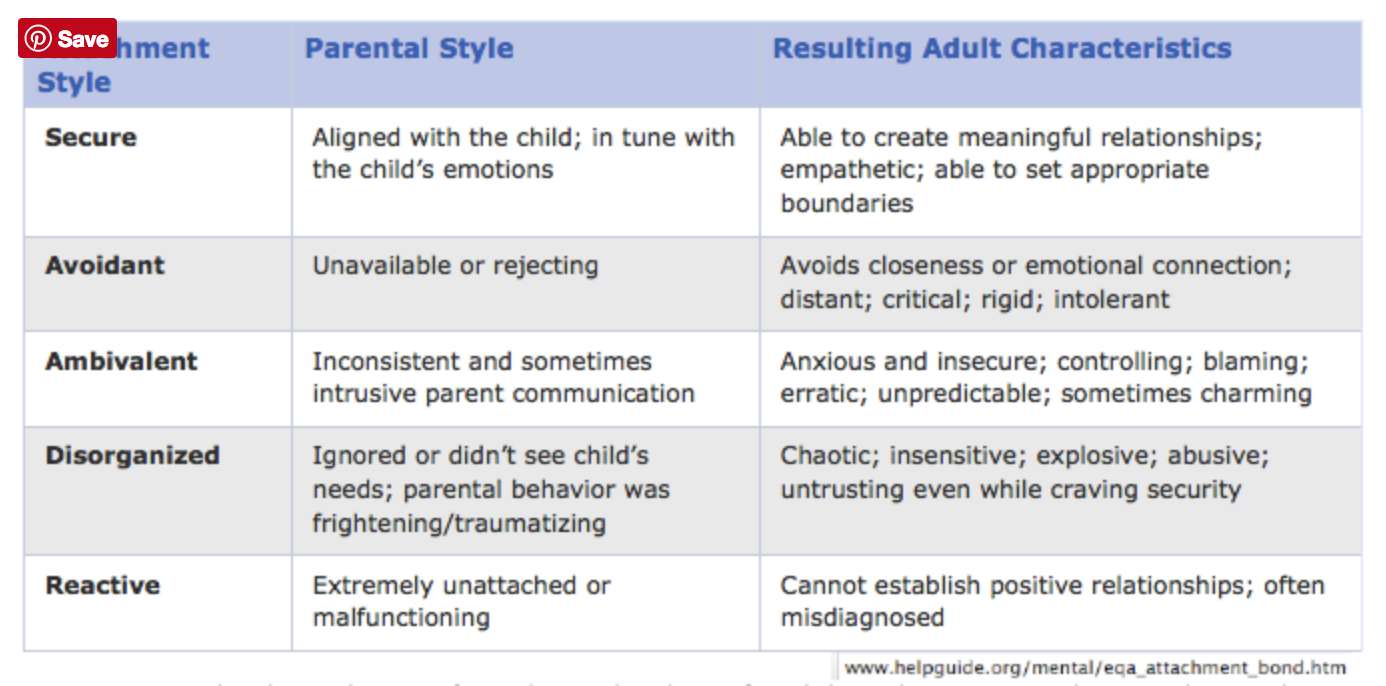
Vocal tone, eye shape, posture, and other micro expressions are continuously being interpreted by you and your partner, whether you realize it or not. “If you approach your partners with hard eyes, tightly pressed lips, and short words, they may not feel safe,” says Dr. Jake Porter, a Houston-based licensed professional counselor.
“The key here is to realize that we are each responsible not only for the words we say but also the way we send them,” he adds.
It’s a good idea to practice paying attention to the nonverbal communication you’re carrying with you before you approach your partner. Consider asking yourself, “What is my body language communicating right now?”
Be an active listener
Active listening is a critical component to a healthy relationship because people need to feel heard and understood to feel secure and validated. “Active listening is when you set aside your defenses and distractions, and truly take in what your partner is telling you,” explains Dr. Isabelle Morley, a licensed clinical psychologist based in Massachusetts.
Isabelle Morley, a licensed clinical psychologist based in Massachusetts.
“The ability to actively listen means that whenever fears or issues arise, your partner will feel comfortable telling you,” she adds. “Instead of the problem growing or your partner becoming resentful, you’ll be able to quickly and easily address it.”
Some ways to practice active listening include:
- nonverbal signs of listening like smiling, nodding, and maintaining eye contact
- asking your partner questions or asking for clarification
- summarizing or reflecting back on what was said
Practice transparency
Transparency is an important part of building trust and emotional safety. When you practice transparency, you eliminate the potential feeling that you or your partner are hiding something from each other.
While you don’t need to share every part of your life with your partner, “general openness about your thoughts, feelings, and activities is a good way to build trust, communication, and security,” says Morley.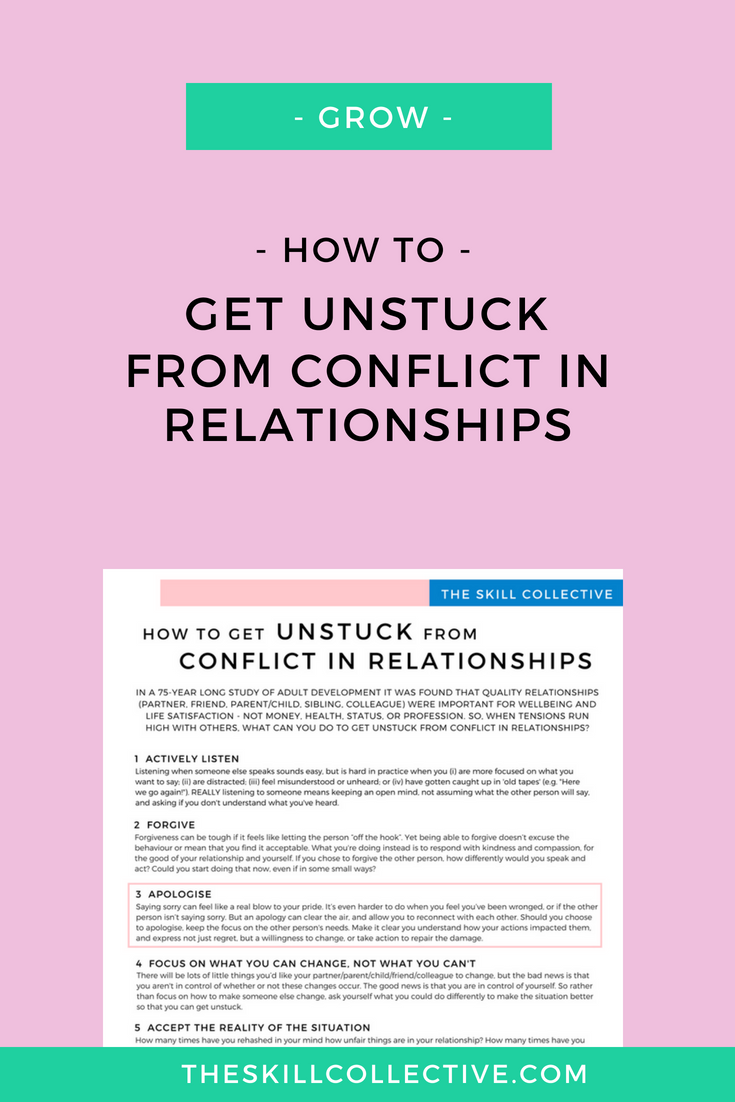
Give your partner the benefit of the doubt
Giving your partner the benefit of the doubt means removing judgment and, instead, being curious to learn about the motivation for their behavior. “Most people’s motivations are subconscious and often connected to their own baggage they bring to the relationship,” says Baltimore-based certified imago relationship therapist Rabbi Shlomo Slatkin.
“When we stop judging and making up stories of why our partner did what they did, we begin to look at them favorably from a place of compassion and understanding,” he adds. “We may disagree with them, but we can at least create a safe environment without confrontation.”
Foster accountability and follow through
Following through shows your partner that you are dependable and value the relationship. When you commit to something and follow through, you actively build trust by showing your partner your loyalty. Yet following through doesn’t have to happen overnight.
Even when you take small steps, enabling your partner to see your consistent effort shows them your commitment to the relationship.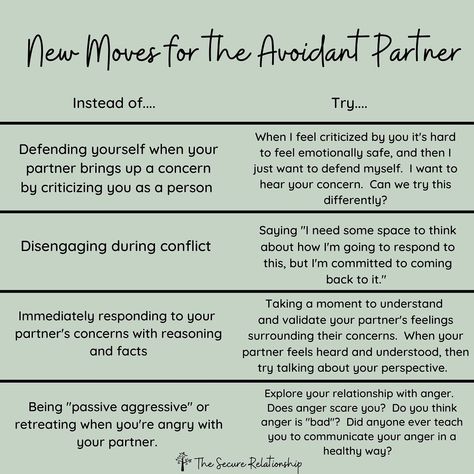 Try keeping your partner in the loop, as this will help you hold yourself accountable too.
Try keeping your partner in the loop, as this will help you hold yourself accountable too.
Consider couples or relationship therapy
A mental health professional’s perspective can help people in relationships build emotional safety by focusing on dealing with conflict rather than focusing on the conflict itself.
“Couples therapy fosters emotional safety by helping couples understand how they work together as a system,” explains Porter. “When I work with couples, I’m less interested in the content of what they are fighting about than the process of how they fight.”
“Focusing on the content might help them in the moment as I mediate a dispute, but they are just going to end up right back in the therapy office next time they can’t agree,” He adds. “Instead, by helping them create a new process for how they approach conflict to set them up for success as life continues to throw challenges their way.”
Emotional safety is key to a healthy and happy relationship.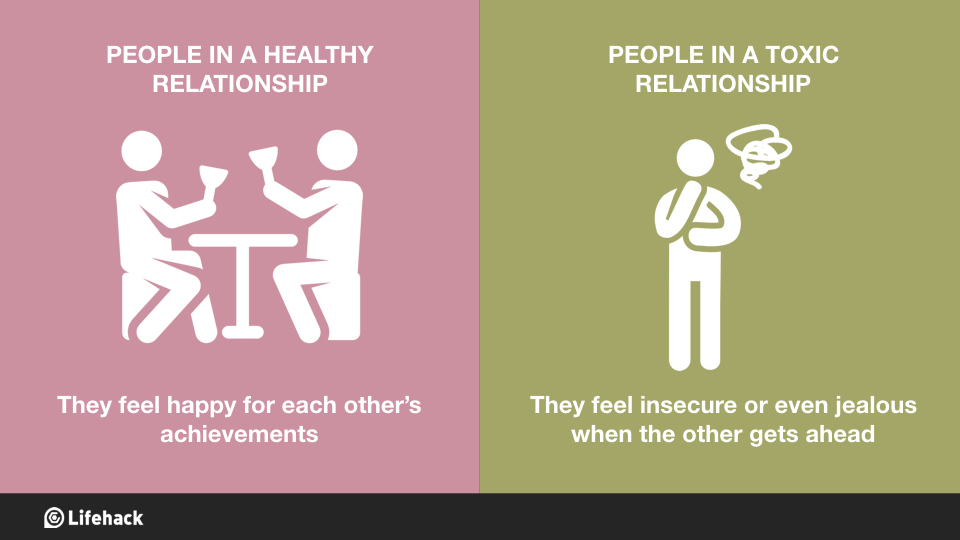 There are countless ways to create emotional safety, and some may work for you better than others. Consider trying a few of the ways we’ve identified and decide which ones work best for you and your partner.
There are countless ways to create emotional safety, and some may work for you better than others. Consider trying a few of the ways we’ve identified and decide which ones work best for you and your partner.
While it may take time to build emotional safety, the result is a relationship built on mutual trust, respect, and unconditional support. Not only will you find yourself seen, heard, and understood, but you will find yourself feeling more connected to yourself and your partner. Try to be patient with each other, and then watch the benefits of being open and vulnerable unfold.
How to Feel More Secure in Your Relationship
How to Feel More Secure in Your Relationship
The Love, Happiness & Success Podcast with Dr. Lisa Marie Bobby
Music Credits: Juniore, “Panique”
How To Feel More Secure in Your Relationship
OVERCOMING INSECURITY | It’s not uncommon for both women and men to feel insecure in a relationship from time to time.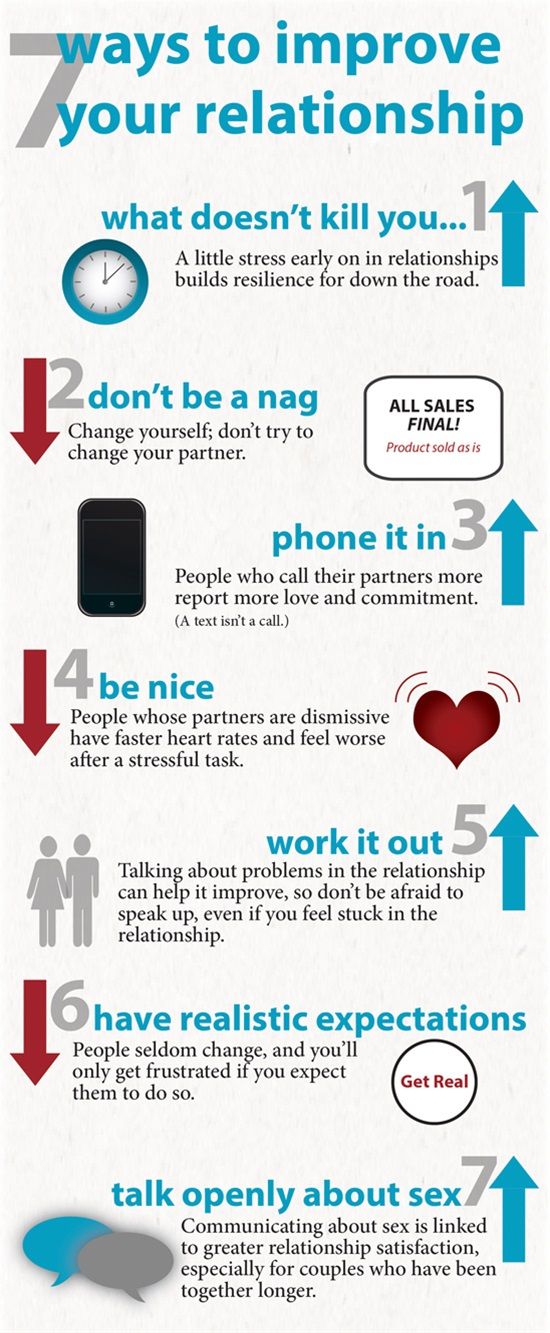
Insecurity affects more people than you think. Many of the couples who come to us searching for life coaching and personal growth discover that insecurity was one of the main issues in their relationship. Insecurity isn’t always obvious at first. It might even look like your relationship issues aren’t related to insecurity at all. That’s because when couples don’t feel completely emotionally safe and secure with each other, it tends to create conflict and problems in many other areas of their partnership.
[For more on the importance of emotional safety and how it may be impacting YOUR relationship, access our free “How Healthy is Your Relationship” Quiz and my mini-couples coaching follow up video series.]
It’s typical for people in new relationships to have some anxiety, but even people in long-term relationships sometimes worry about their partner’s feelings for them. While very common, feelings of insecurity in your relationship can create problems for both of you.
Root Causes of Insecurity
If insecurity is an issue in your relationship — either for you, or your partner — you might be speculating about the root causes of insecurity and how to heal them. Here are six of the most common causes of insecurity, and some tips on how to address them.
Insecurity After Infidelity
If you’ve been betrayed by a partner in the past, it’s completely natural to struggle to feel secure in your present relationship. Feelings of insecurity after an experience with infidelity or an emotional affair are very common. In these cases, the path to healing can be a long one. The person who did the betraying often needs to work very hard, for a long time, to show (not tell, but show) their partners that they can trust them again.
Anxiety After Being Let Down Repeatedly
Insecurities can also start to emerge after less dramatic betrayals and disappointments. Even feeling that your partner has not been emotionally available for you, has not been consistently reliable, or was there for you in a time of need, can lead you to question the strength of their commitment and love.
Even feeling that your partner has not been emotionally available for you, has not been consistently reliable, or was there for you in a time of need, can lead you to question the strength of their commitment and love.
Trust is fragile
If your relationship has weathered storms, learning how to repair your sense of trust and security can be a vital part of healing. Often, couples need to go back to the past to discuss the emotional wounds they experienced with each other in order to truly restore the bond of safety and security. These conversations can be challenging, but they are necessary.
Insecurity Due to Past Trauma
Sometimes people who were traumatized in past relationships can struggle to feel secure with their present partner. For some people, their very first relationships were with untrustworthy or inconsistent parents, which led them to develop insecure attachment styles, which make them feel apprehensive or protective when anyone gets too close. However, even people with loving parents and happy childhoods can carry scars of past relationships, particularly if they’ve been through a toxic relationship at some point in their lives. It’s completely understandable: Being burned by an ex can make it harder to trust a new partner, because you fear being hurt again.
However, even people with loving parents and happy childhoods can carry scars of past relationships, particularly if they’ve been through a toxic relationship at some point in their lives. It’s completely understandable: Being burned by an ex can make it harder to trust a new partner, because you fear being hurt again.
Long Distance Relationships
Sometimes, insecurity has more to do with the circumstances of the relationship than the people who are in it. For example, you might feel more insecure if you’re in a long-distance relationship. Not being able to connect with your partner, or see them in person all the time, can take a toll on even the strongest relationship. Couples in long-distance relationships should expect that they will have to work a little harder than couples who are together day-to-day in order to help each person to feel secure and loved. In these cases, carefully listening to each other about what both of you need to feel secure and loved is vital, as is being intentional, reliable, and consistent.
Feeling Insecure When You’re Dating Someone New
Dating someone new is exciting, but it can also be intensely anxiety-provoking. In new (or new-ish) relationships where a commitment has not been established, not fully knowing where you stand with a new person that you really like is emotionally intense. If you’re involved in a new relationship, you may need to deliberately cultivate good self-soothing and calming skills in order to manage the emotional roller coaster that new love can unleash.
Feeling Insecure With a Withdrawn Partner
Different types of relationship dynamics can lead to differences in how secure people feel. The same person can feel very secure and trusting in one relationship, but with a different person, they might feel suspicious, worried, or like they’re on pins and needles. Often this has to do with the relational dynamic of the couple. For example, in relationships where one person has a tendency to withdraw, be less communicative, or is not good at verbalizing their feelings, their partner may feel worried about what’s really going on in the other person’s head.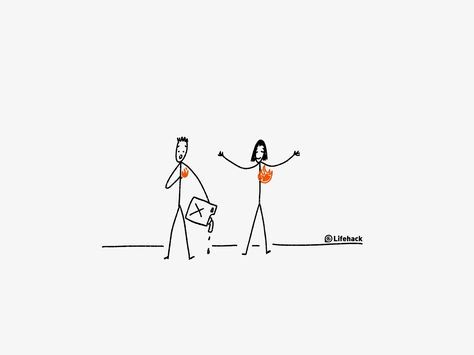 This can turn into a pursue-withdraw dynamic that intensifies over time; one person becoming increasingly anxious and agitated about not being able to get through to their partner, and the withdrawn person clamping down like a clam under assault by a hungry seagull. However, when communication improves and couples learn how to show each other love and respect in the way they both need to feel safe and secure, trust is strengthened and emotional security is achieved.
This can turn into a pursue-withdraw dynamic that intensifies over time; one person becoming increasingly anxious and agitated about not being able to get through to their partner, and the withdrawn person clamping down like a clam under assault by a hungry seagull. However, when communication improves and couples learn how to show each other love and respect in the way they both need to feel safe and secure, trust is strengthened and emotional security is achieved.
Types of Insecurities
Insecurities can take many forms, and emerge for a variety of reasons.
Emotional security (or lack thereof) is complex. In addition to having a variety of root causes, there are also different ways that insecurity manifests in people — and they all have an impact on your relationship. People who struggle with low self esteem may find it hard to feel safe in relationships because they always anticipate rejection. The “insecure overachiever” may similarly struggle to feel secure in relationships if they’re not getting the validation and praise that they thrive on.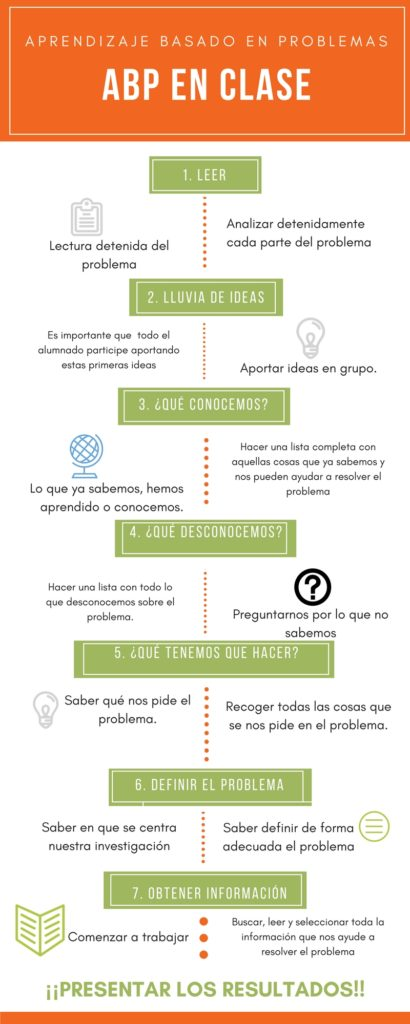
For others, insecurity is linked to an overall struggle with vulnerability and perfectionism. People who feel like they need to be perfect in order to be loved can — subconsciously or not — try to hide their flaws. But, on a deep level, they know they’re not perfect (no one is) and so that knowledge can lead to feelings of apprehension when they let other people get close to them. In these cases, learning how to lean into authentic vulnerability can be the path of healing. [More on this: “The Problem With Perfectionism”]
Sometimes people who are going through a particularly hard time in their lives can start to feel apprehensive about where they stand in their relationship. For example, people who don’t feel great about their career can often feel insecure when they’re around people who they perceive as being more successful or accomplished than they are. This insecurity is heightened in the case of a layoff or unexpected job loss. If one partner in a relationship is killing it, and the other is feeling under-employed or like they’re still finding their way, it can lead the person who feels dissatisfied with their current level of achievement to worry that their partner is dissatisfied with them too.
Insecurities can take many forms, and emerge for a variety of reasons. However, when insecurity is running rampant, the biggest toll it takes is often on a relationship.
Grow, Together.
Our authentic relationship experts know how to help you learn, grow, and move forward into a bright new chapter.
Get connected
How Insecurity Can Ruin a Relationship
To be clear: Having feelings is 100% okay. Nothing bad is going to happen to you, or your relationship, or anyone else because you have feelings of anxiety or insecurity. The only time relationship problems occur as a result of feelings is when your feelings turn into behaviors.
If people who feel insecure, anxious, jealous or threatened don’t have strategies to soothe themselves and address their feelings openly with their partner, and have those conversations lead to positive changes in the relationship, then their feelings can lead to behaviors that can harm the relationship.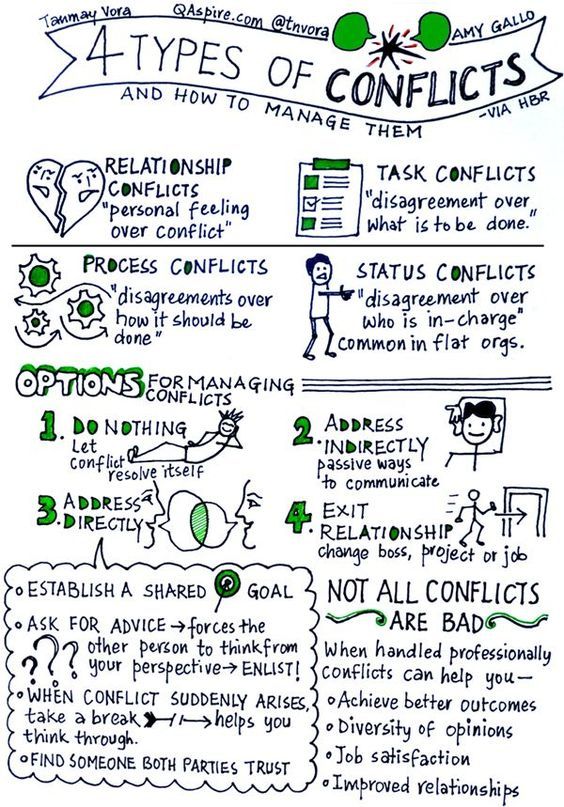 Some people lash out in anger when they perceive emotional danger, or if they think their partner is being hurtful to them. Often, people who feel insecure will attempt to control their partner’s behaviors in efforts to reduce their own anxiety. Many insecure people will hound their partners for information about the situations they feel worried about. Still others will withdraw, preemptively, as a way of protecting themselves from the rejection they anticipate.
Some people lash out in anger when they perceive emotional danger, or if they think their partner is being hurtful to them. Often, people who feel insecure will attempt to control their partner’s behaviors in efforts to reduce their own anxiety. Many insecure people will hound their partners for information about the situations they feel worried about. Still others will withdraw, preemptively, as a way of protecting themselves from the rejection they anticipate.
While all of these strategies are adaptive when you are in a situation where hurtful things are happening, (more on toxic relationships here) problems occur when these defensive responses flare up in a neutral situation. A common example of this is the scenario where one person repeatedly asks their partner if they’re cheating on them because they feel anxious, when their partner is actually 100% faithful to them and has done nothing wrong. The insecure person might question their partner, attack their partner, check up on their partner, or be cold and distant due to their worries about being cheated on or betrayed — when nothing bad is actually happening.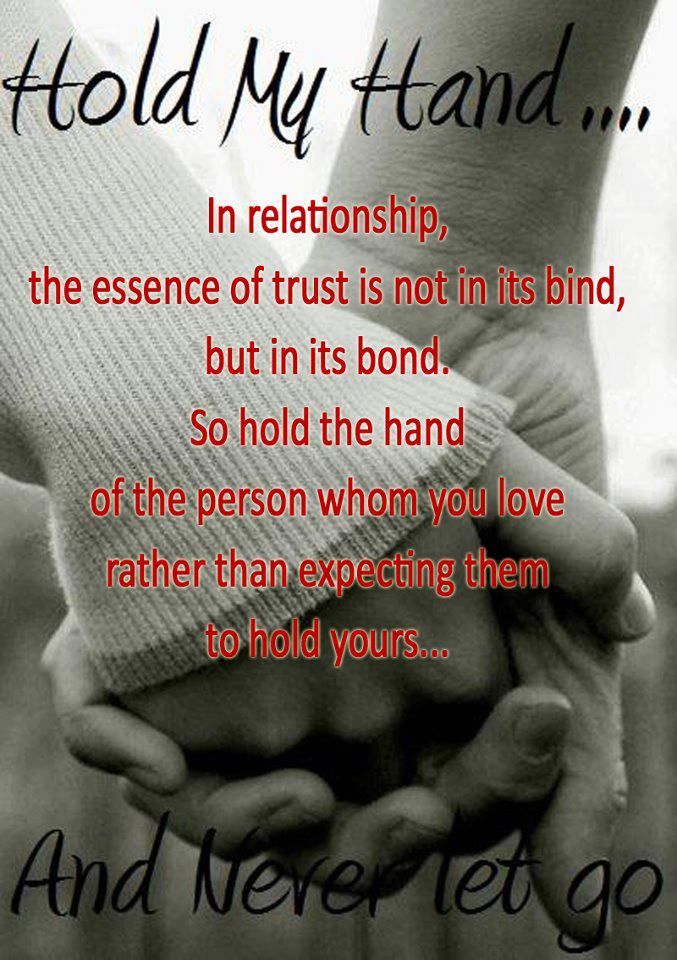 This leaves the person on the other side feeling hurt, controlled, rejected, vilified… or simply exhausted.
This leaves the person on the other side feeling hurt, controlled, rejected, vilified… or simply exhausted.
If feelings of insecurity are leading to problematic behaviors in a relationship, over time, if unresolved, it can erode the foundation of your partnership.
How to Help Your Partner Feel More Secure In Your Relationship
The key here is consistency…
It’s not uncommon for partners of insecure people to seek support through therapy, life coaching, or couples counseling either for themselves or with their partners. They ask, “How do I help my wife feel more secure,” or “How do I help my husband feel more secure.” This is a great question; too often partners put the blame and responsibility for insecure feelings squarely on the shoulders of their already-anxious spouse or partner. This, as you can imagine, only makes things worse.
While creating trust in a relationship is a two-way street, taking deliberate and intentional action to help your partner feel emotionally safe with you in the ways that are most important to him or her is the cornerstone of helping your insecure girlfriend, insecure boyfriend, or insecure spouse feel confident in your love for them.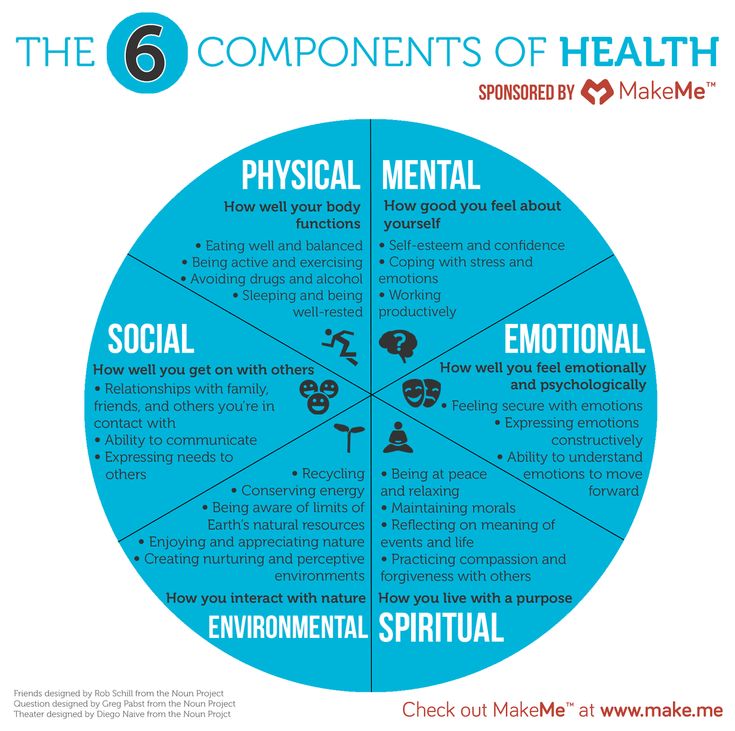 The key here is consistency, and a willingness to do things to help them feel emotionally secure — even if you don’t totally get it. This is especially true if your partner’s insecurity stems from past trauma or betrayal.
The key here is consistency, and a willingness to do things to help them feel emotionally secure — even if you don’t totally get it. This is especially true if your partner’s insecurity stems from past trauma or betrayal.
Tips to help your spouse feel more secure in your relationship
- Ask them what they need from you to feel emotionally safe and loved by you
- Give that to them (over and over again, without being asked every time)
- Rinse and repeat
How to Stop Being Insecure
While the partners of anxious people do need to try a little harder to help their loved ones feel secure, the person struggling with insecurity also needs to take responsibility for their feelings and learn how to manage them effectively.
[For more information of how to uncover your hidden obstacles, check out this article]
Note: This doesn’t mean never worrying or feeling insecure (feelings happen y’all), but rather, learning how to have feelings that don’t turn into relationship-damaging behaviors.
Without the ability to soothe yourself, become grounded in the here and now, and get your emotional needs met by your partner (or yourself), unbridled insecurity can put a major strain on a relationship. But how? How do you manage insecurity? That’s the million-dollar question, and that’s why I’ve made it the topic of the latest episode of the Love, Happiness and Success Podcast!
If you’re struggling with insecurity in your relationship — either as the person who worries, or the one who’s trying to reassure them — you’ll definitely want to join me and my colleague Georgi C., an Arkansas-based marriage counselor and family therapist who specializes in attachment therapy, as we discuss this topic. We’re going deep into the topic of insecurity in relationships and how to overcome it. Listen and learn more about:
- The root causes of insecurity
- The surprising ways insecurity can impact a relationship
- Practical strategies to help someone else feel more secure
- Actionable advice to help yourself feel less insecure
- How to heal and strengthen trust and security
- Concrete tools couples can use to banish insecurity from their relationship
We hope that this discussion helps you overcome insecurity and create the strong, happy relationship you deserve.
With love and respect,
Dr. Lisa Marie Bobby & Georgi C., MS, LAMFT
P.S. Pro Tip: Once you listen to this podcast, consider sharing it with your partner. Doing so can be an easy, low-key way to start an important, and necessary conversation about how to increase the emotional safety and security you both feel in your relationship. xo, LMB
P.P.S. We have so much more support for you here! To access other podcasts and articles on this topic, like “How to Deal With Trust Issues,” please visit our Emotional Wellness Collection, our Growing Together Collection, our Relationship Repair Collection, and more. It’s all there for you. — LMB
Listen & Subscribe to the Podcast
How to Feel More Secure in Your Relationship
The Love, Happiness & Success Podcast with Dr. Lisa Marie Bobby
Music Credits: Juniore, “Panique”
Free, Expert Advice — For
You.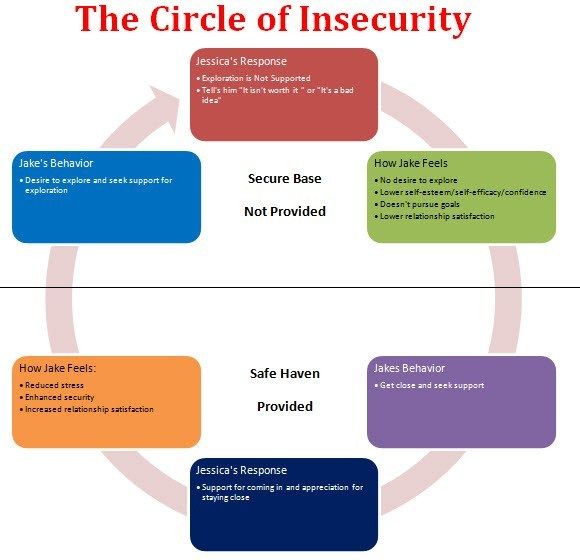
Subscribe To The Love, Happiness, and Success Podcast
Apple Podcast
Spotify
Episode Highlights:
- How Insecurity Can Ruin A Relationship
- A relationship can reveal sides of you that you may not know about.
- The more experience you have, the more open with your partner you should be.
- If you don’t feel secure in your relationship, you will be more distant
- Root Causes of Anxiety
- ‘Attachment injuries’ can cause anxiety.
- Affairs, whether by yourself or by your partner, can cause anxiety.
- Be true to your feelings fortress anxi
- How to Help Yourself Feel More Secure
- Find something that makes you feel fulfilled
- Understand your uniqueness
- Work with a professional
- How to Help Your Partner Feel More Secure
- Listen to your partner
- Do not be immediately defensive
- What Couples Can Do
- Be each other’s support
- Try our relationship quizzes!
Lisa Marie Bobby, PhD, LMFT, BCC PhD, LP, LMFT, BCC
Dr.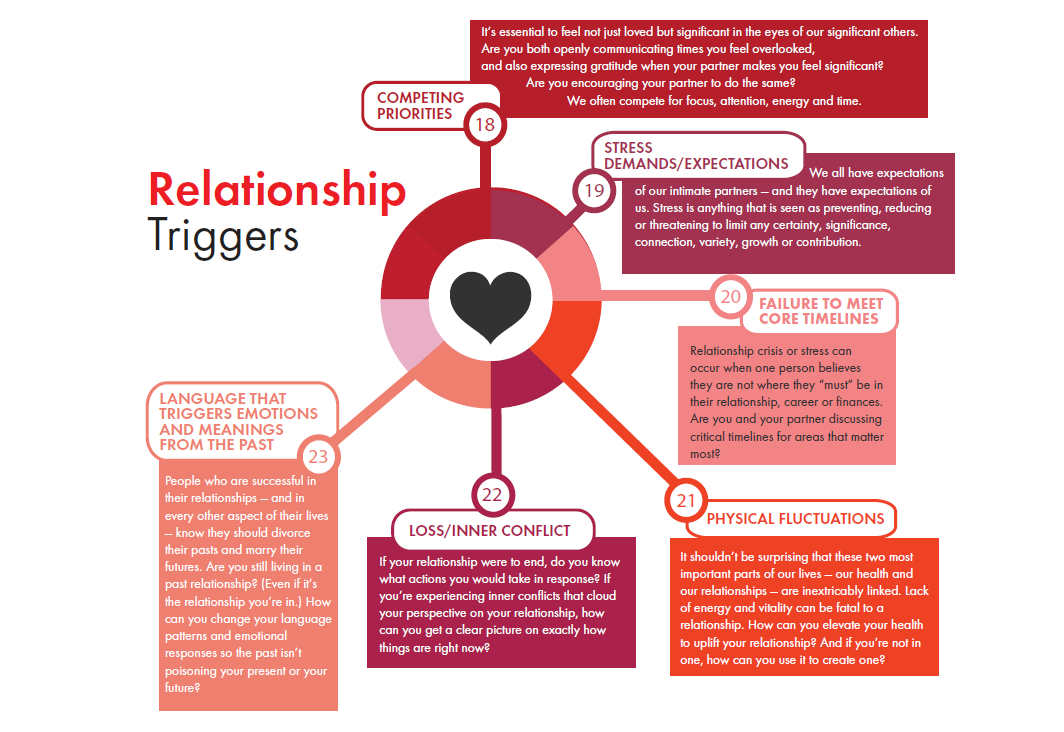 Lisa Marie Bobby is the founder and clinical director of Growing Self. She is a licensed psychologist, a licensed marriage and family therapist, and a board-certified coach, as well as the author of “Exaholics: Breaking Your Addiction to Your Ex Love,” and the host of The Love, Happiness & Success Podcast.
Lisa Marie Bobby is the founder and clinical director of Growing Self. She is a licensed psychologist, a licensed marriage and family therapist, and a board-certified coach, as well as the author of “Exaholics: Breaking Your Addiction to Your Ex Love,” and the host of The Love, Happiness & Success Podcast.
Learn more about Dr. Lisa
Let’s Talk: Start With a Free Consultation
If you’re ready to grow, we’re here to help. Connect with us, and let us know your hopes and goals. We’ll follow up with recommendations, and will help you schedule a first, free consultation.
Get Recommendations
If you’re considering getting involved in marriage counseling, couples therapy, or relationship coaching you probably have questions! Get your marriage counseling questions answered, right here.
How to feel more confident in a new relationship - HEROINE
The beginning of a relationship is a good test for self-esteem.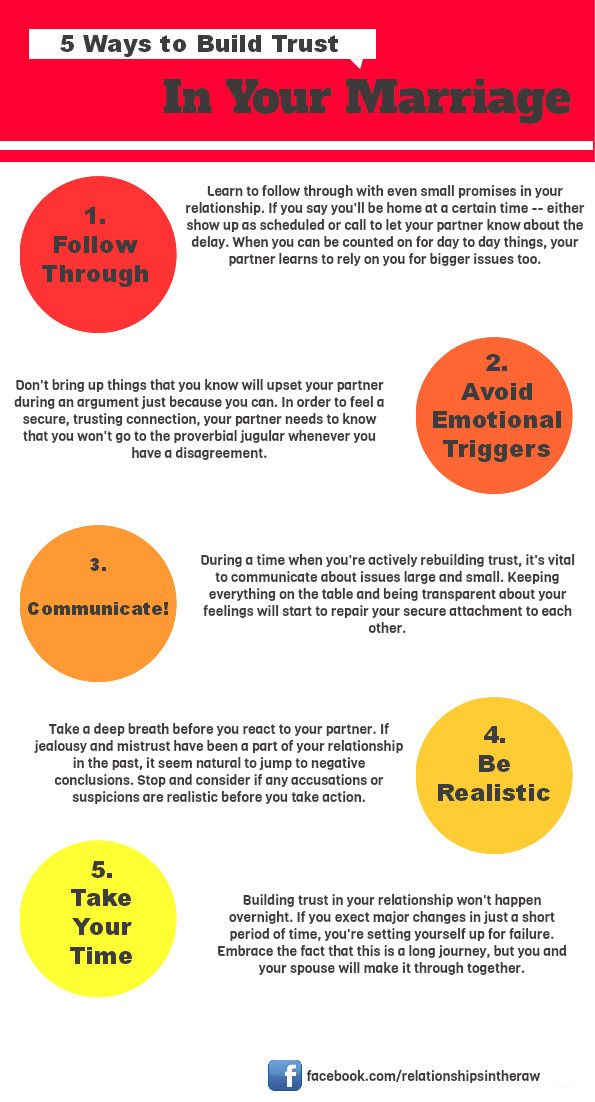 You still don’t know each other enough to trust, so every slight gesture from your partner – didn’t say goodnight, although he usually did, didn’t like a fresh photo on your profile – is perceived as a signal. If you manage to maintain your self-confidence, it will give a good start to your relationship. Here's how to deal with the fear that things won't work out with your new boyfriend.
You still don’t know each other enough to trust, so every slight gesture from your partner – didn’t say goodnight, although he usually did, didn’t like a fresh photo on your profile – is perceived as a signal. If you manage to maintain your self-confidence, it will give a good start to your relationship. Here's how to deal with the fear that things won't work out with your new boyfriend.
Use the “rule of threes”
One way to overcome self-doubt when dealing with a new guy is to use the “rule of threes,” advises relationship consultant Heather Z. Lyons, Ph.D. If your partner does something that upsets you - for example, does not call back or disappears for a day without explanation - remember that the first such negative incident does not necessarily mean anything. The second such act may be a coincidence. For the third time, it already makes sense to talk about what worries you with a guy.
This strategy helps to avoid jumping to conclusions and not bombarding the partner with unreasonable reproaches.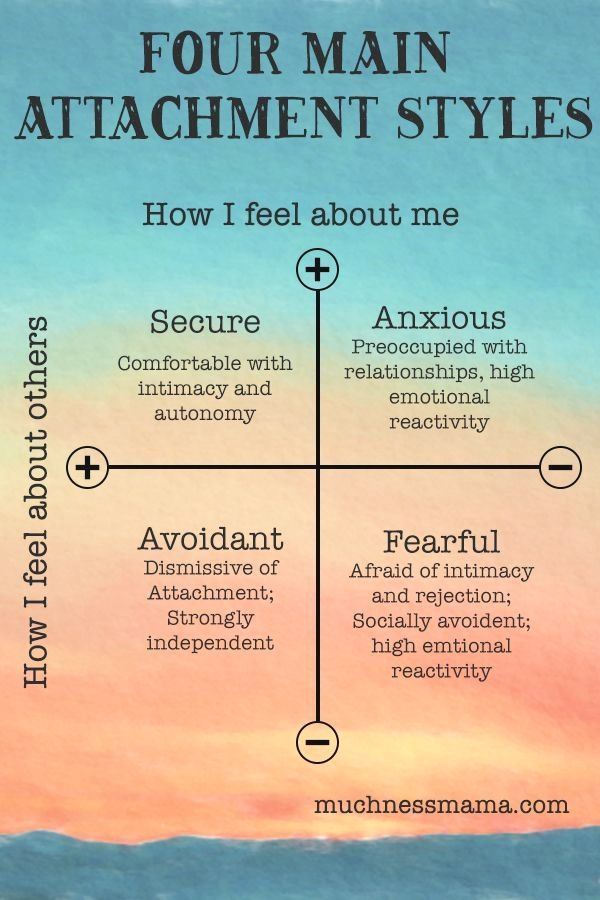 You first observe his actions, you understand that this is a model of behavior, and not an accident, and even then you talk about it.
You first observe his actions, you understand that this is a model of behavior, and not an accident, and even then you talk about it.
Of course, this does not apply to serious red flags: betrayal, insults, physical violence, and so on. In these cases, one incident is enough to draw conclusions.
Find a friend in your new partner
Seeing a new guy as a friend will slightly change your expectations of him and your relationship. Often we forgive friends for petty annoying acts and are not inclined to assume that the friendship ended because of one conflict.
We welcome our friends, but not partners. Take some time to get to know the good and bad sides of a guy. If you first establish positive spiritual communication, and only then move on to romance, then you will be more confident in him as a person.
Live in the present
It's good to know what you need from a relationship, it helps not to waste time on unpromising partners.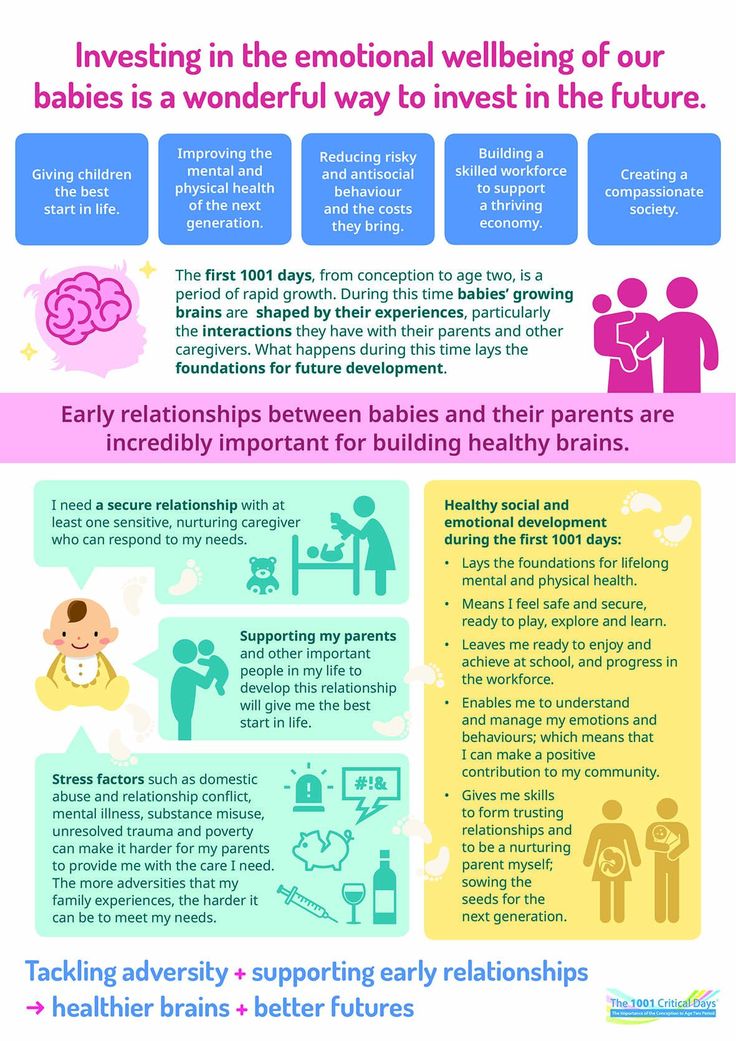 But, if you see only a specific goal ahead - for example, that a guy should introduce you to his parents, offer to live together, or declare you in some other way - then all your attention will be focused only on this. You will not be able to enjoy the moment, to observe whether a guy suits you or not, how you feel with him. A self-confident person knows that if the relationship does not work out, it means that there is simply an inappropriate partner nearby. It makes no sense to evaluate every act at the beginning of an acquaintance, based only on whether he will marry you in the future.
But, if you see only a specific goal ahead - for example, that a guy should introduce you to his parents, offer to live together, or declare you in some other way - then all your attention will be focused only on this. You will not be able to enjoy the moment, to observe whether a guy suits you or not, how you feel with him. A self-confident person knows that if the relationship does not work out, it means that there is simply an inappropriate partner nearby. It makes no sense to evaluate every act at the beginning of an acquaintance, based only on whether he will marry you in the future.
Remember that your worth does not depend on your partner's attitude towards you
This is a very important rule for self-confidence - to love yourself, you do not need someone's approval.
At the beginning of a relationship, people are too obsessed with getting confirmation from a new partner that they are worthy and important to him. However, your value does not depend on whether the new guy admires you or not.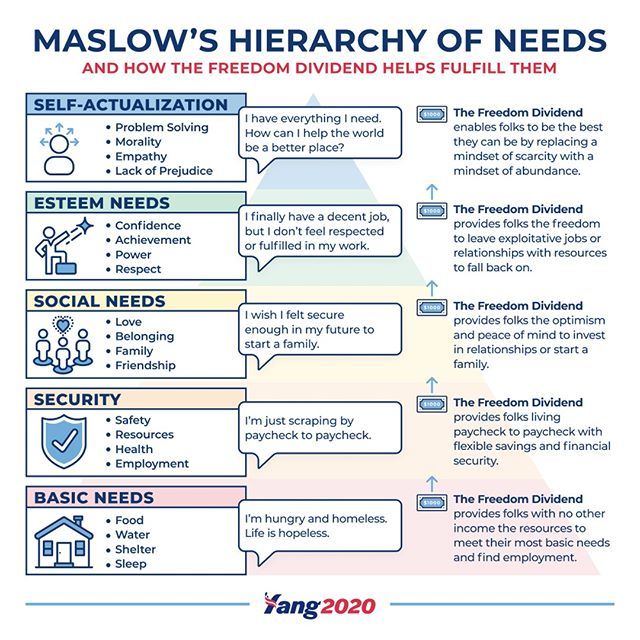
Self-love will help you not to become dependent on your partner's opinion. Keep reminding yourself how amazing you are. A confident person will not get depressed because the one with whom he began to date did not appreciate him or acted badly.
Enjoy being with a partner
Starting a relationship should be easy, so try not to focus on self-digging and looking for a catch. Now you have another person to have fun with, use this opportunity. Enjoy communication with him, take risks, do what you have long dreamed of. The more pleasant moments you experience together, the easier it is for both of you to relax and not worry about the little things.
You too have the right to decide whether it suits you or not
Sometimes people become so obsessed with pleasing their new partner that they overlook a lack of common interests, red flags in their behavior, or other signs that you shouldn't be together. Remember that this is not an exam and not only you are chosen here, but also you. Don't confuse your desire to please and be the right girl with real feelings for a guy.
Don't confuse your desire to please and be the right girl with real feelings for a guy.
If he is interested in you, the partner also worries, tries to please and worries. You are in equal positions, which means that you should not behave and feel like a casting participant.
Add to favorites
Share
Related articles:
What do you really need to feel confident in a relationship
Sign in
Welcome!Log into your account
Your username
Your password
Have you forgotten your password?
Password recovery
Recover your password
Your email address
Home Articles What do you really need to feel confident in a relationship
Do you constantly write and call your loved one because you are not sure about him? Do you check his phone while he is in the shower, secretly read messages in instant messengers and even work chat? Or maybe even keep track of his whereabouts using the My Friends and Find My iPhone apps? You know very well that this is a dead end path.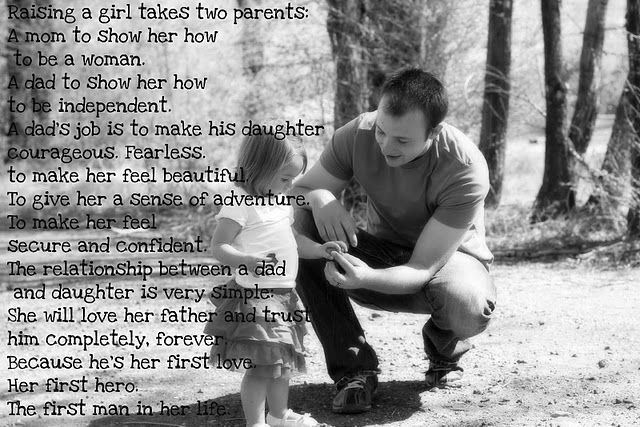 Either you will become paranoid and your partner will have to break up with you, or you will find out what you should not know, and your relationship will also end.
Either you will become paranoid and your partner will have to break up with you, or you will find out what you should not know, and your relationship will also end.
Where does uncertainty come from?
You met each other and fell in love. Every morning you make him coffee, see him off to work, cook dinner, wait for work, sleep with him… You give him a piece of yourself, and he gives himself. And it seems to you that this exchange of chemistry will be eternal, but soon something goes wrong. His love and attention is like a drug for you, and you need to constantly increase the dose. And he has his own affairs, and you can't forgive him for that, right?
Why? Psychologists answer this question in this way. Perhaps a person (more often a girl) had problems with parental attention in childhood. Simply put, she was not loved, and now she is looking for someone who will make up for her loss.
Or such a person was rejected in a previous relationship. The betrayal of a partner makes people feel unloved, useless.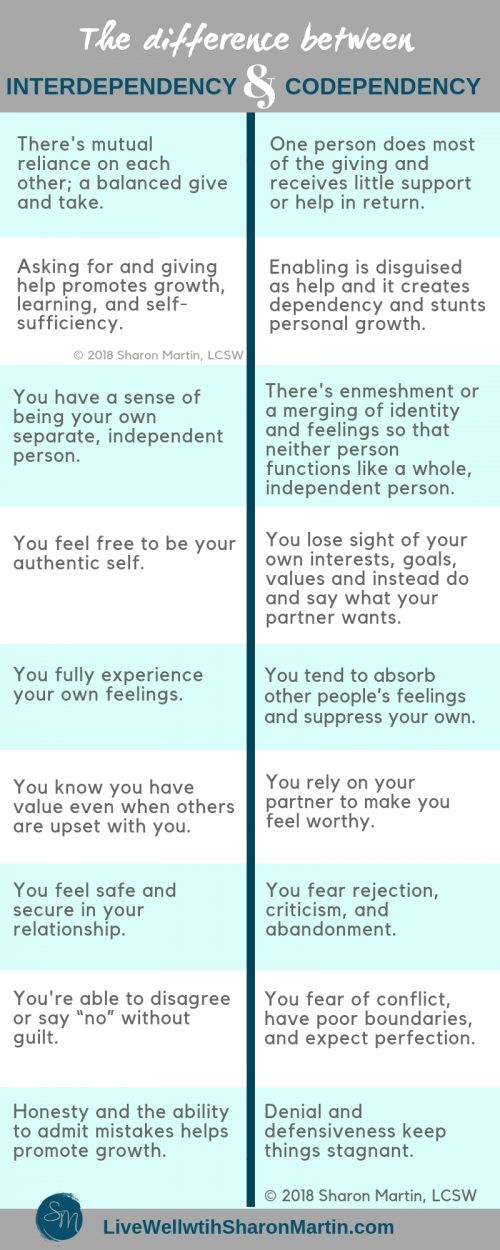 They are hurt, their self-esteem drops, and therefore it is difficult for such people to open up to others and trust anyone else. And when abandoned lovers find themselves a new passion, they will inevitably feel insecure in a relationship.
They are hurt, their self-esteem drops, and therefore it is difficult for such people to open up to others and trust anyone else. And when abandoned lovers find themselves a new passion, they will inevitably feel insecure in a relationship.
And when they open up to a new partner, they begin to demand the almost impossible from him. Always being there, always responding to messages, not going to a bar with friends... And such behavior exhausts a partner, no matter how in love he is.
What is the paradox?
A girl who bothers her boyfriend with calls does not do it on purpose: she is driven by an inner fear of being abandoned. Therefore, it is important for her to feel confident all the time that he did not leave, did not betray, did not cheat on her. But the guy does not understand this: such behavior can irritate him, cause discomfort and pain. Well, who will like it if a beloved behaves like a mother who calls her seven-year-old son from the yard to eat soup?
How to become confident in a relationship?
The most important task of a woman, which has developed historically, is to keep the fire in the hearth.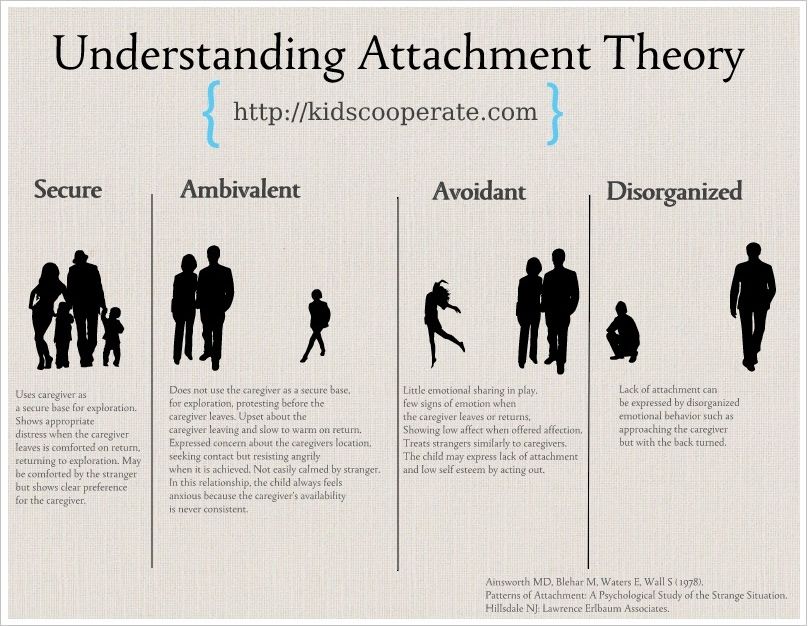 Quote from Domostroy? Not at all. After all, if you dig deeper, then the symbol of the hearth - that is, love, harmony, harmony and comfort in the house - is enclosed primarily within the woman. This is her own fire, her spirit and self-sufficiency.
Quote from Domostroy? Not at all. After all, if you dig deeper, then the symbol of the hearth - that is, love, harmony, harmony and comfort in the house - is enclosed primarily within the woman. This is her own fire, her spirit and self-sufficiency.
Do you feel insecure when he is not around? Why should your happiness and well-being depend on the other person? You need to try to create your own fire, your own atmosphere within yourself. Take care of your self-esteem, because how to keep a man if you don’t love yourself?
Set your own priorities. If you are used to running in the morning, do it no matter what. Do not stay at home with him if he just decided to lie on the couch - meet friends, go to fitness, attend a useful master class. Do not herd your man and do not behave like a faithful dog. Allow yourself to live without looking back and make mistakes, and your fire of confidence will illuminate you from the inside.
previous article5 rare and 9 strange psychopathological syndromes0003
Next articleWhy do people hold grudges and what to do with them
5 main differences between English men and Russian men
Dark room.

